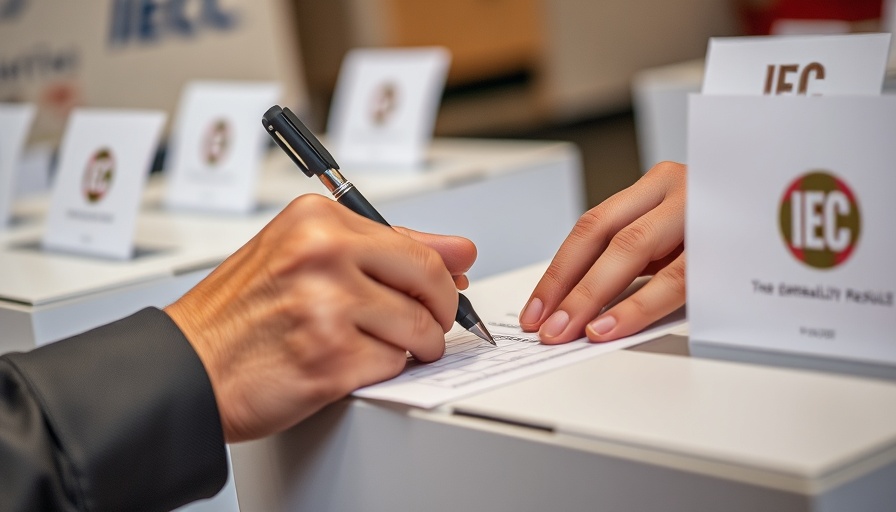
The Implications of the MK Party's Recent Victory in Saldanha Bay
The recent win by the uMkhonto weSizwe (MK) Party in ward one of the Saldanha Bay municipal by-election marks a significant milestone in South Africa's evolving political landscape. Securing 36.3% of the cast votes, the MK Party edged out traditional powerhouses like the African National Congress (ANC) and the Patriotic Alliance (PA), illustrating a potential shift in voter sentiment leading up to critical elections in 2024 and 2026.
Voter Turnout and Engagement: A Reflection of Political Dynamics
The 55% voter turnout recorded suggests a level of engagement that is pivotal to understanding current political dynamics. With more than 6,000 registered voters participating, this reflects a renewed interest in local governance that political analysts may interpret as a foreboding signal for established parties struggling to remain relevant amid electoral reforms and changing voter expectations.
Historical Context: The Role of MK in the Current Political Climate
Historically, the MK Party emerged as a militant wing of the ANC during the liberation struggle. Its re-emergence in local politics highlights a grassroots response to perceived failures within the coalition government structure that has characterized South African politics in recent years. This by-election win may symbolize a rejection of the status quo associated with politicians like Cyril Ramaphosa, as voters seek representation that aligns more closely with their interests.
Future Predictions: Is Political Realignment on the Horizon?
As South Africa gears up for the 2024 general elections, the MK Party's victory may herald broader political realignments. The dynamics within the coalition government led by the ANC have been fraught with challenges related to service delivery and economic reforms. With opposition parties, including the DA and EFF, observing the MK Party's tactics, a rise in alternative political forces may disrupt traditional party politics.
Analyzing the Regional Impact of the By-Election
The Saldanha Bay outcome is not just a local event but might set a precedent for other regions where dissatisfaction with the ANC and other opposition parties is palpable. Factors such as land reform, economic policy, and public sector challenges play significant roles in the aspirations of voters. With discussions surrounding issues like corruption and accountability gaining traction, MK's commitment to these principles may resonate across similar constituencies.
Challenges Ahead for the MK Party
While the victory is promising, the MK Party faces daunting challenges ahead. Establishing a legislative agenda that breaks from traditional stalemate politics is essential for longevity. The expectations from voters in Diazville and Middelpos may push the new leadership to focus on corruption and service delivery within local government, making or breaking their mandate in future elections.
Public Perception: The Sentiment on the Ground
The enthusiastic support for MK's Mzwandile Biko, who is regarded as a fresh voice for change, underscores a desire among voters for leadership that embodies their aspirations. As sentiments around youth unemployment and public sector reforms remain high, the success of the MK Party will greatly depend on their ability to engage with community concerns authentically. The reflection of this in local governance could redefine trust and accountability for South African politics.
What This Means for Future Governance
The by-election in Saldanha Bay serves as a crucial touchpoint for examining the evolving narrative around political parties and governance in South Africa. With the country navigating through issues of economic instability, racial reconciliation, and public accountability, it is incumbent on parties, including the MK Party, to pivot effectively towards the values and aspirations of the electorate. Analyzing this victory could offer vital lessons for upcoming elections.
As the political landscape continues to shift, it is essential for both voters and aspiring leaders to stay informed about the developments leading up to the general elections. Engaging in the electoral process, understanding policy implications, and making informed choices will be crucial for shaping South Africa's future.
 Add Row
Add Row  Add
Add 




Write A Comment